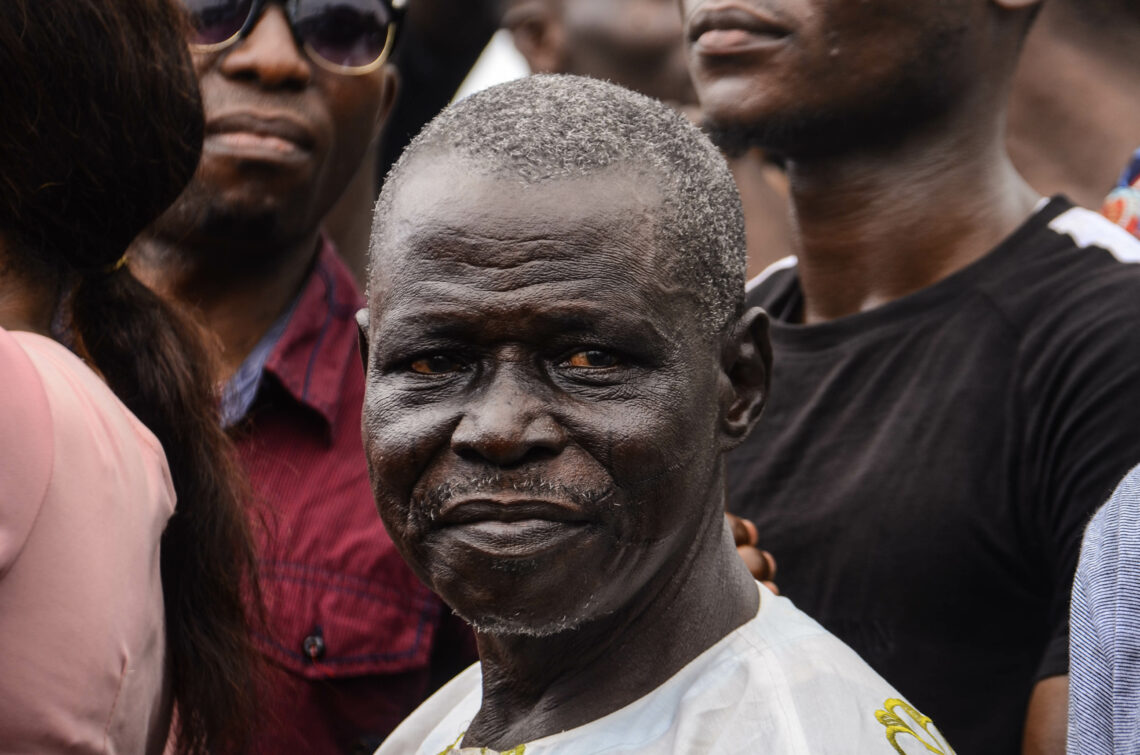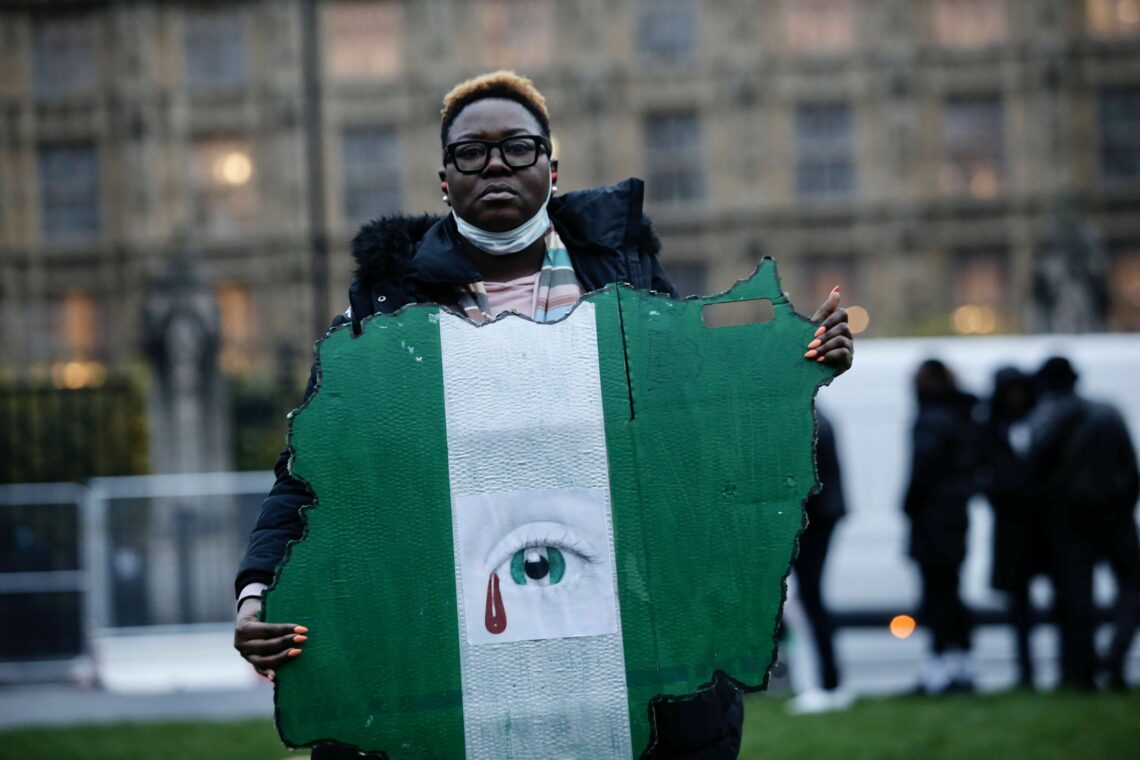Anti-SARS protests challenge the Nigerian government
After a young man was killed by officers of the specialized SARS police unit, Nigerians took to the streets. While the authorities in Lagos have agreed to dismantle the unit, demonstrations and anti-SARS protests will inevitably return without deeper structural change.

In a nutshell
- Police brutality sparked widespread unrest in Nigeria
- Without reliable leadership, the anti-SARS protests died out rapidly
- Long-held grievances will resurface with the next scandal
Protests against police brutality have exposed once more the fragilities of the Nigerian state. As the country faces the economic impact of the Covid-19 pandemic, popular grievances are bound to sharpen, particularly among the urban youth. But even if the country’s short-term perspectives are far from rosy, a scenario of major political disruption remains unlikely.
SARS
Created in the 1980s, the Special Anti-Robbery Squad (SARS) is a specialized unit of the Nigerian police. Though it has had some success in curbing violent crime, SARS is also perceived as a brutal and corrupt institution, whose members often resort to extortion, unlawful arrests, torture and extrajudicial killings.
On October 20, the police opened fire at the Lekki Toll Gate, killing at least 12 people.
When criticism of SARS first ratcheted up in 2017, it was limited to social media through the #EndSARS campaign. However, when a film showing two SARS officers killing a young man appeared in October 2020, protesters took to the streets. As the scale and intensity of demonstrations increased, the government imposed curfews throughout the country and the anti-riot police were deployed to “restore order.” However, President Muhammadu Buhari also announced the dismantlement of SARS and its replacement by a new Special Weapons and Tactics (SWAT) team.
The announcement was not sufficient to appease Nigerians. Protestors demanded the immediate release of activists; justice and compensation for the victims of police brutality; an independent body to oversee the investigation and prosecution of all reports of police misconduct; psychological evaluation and retraining of all former SARS officers before being redeployed; as well as higher salaries for police officers.
On October 20, as demonstrators defied the curfew imposed in the state of Lagos, the police opened fire at the Lekki Toll Gate, killing at least 12 people. The attack was live-streamed on Instagram. Amnesty International estimates that at least 56 people died during the protests.
Reactions
The End SARS protest movement was intense but short-lived. Social media were used to mobilize discontent and reach international audiences, including the large Nigerian diaspora. Protest organizers raised over $400 million. Initially, funds were processed through Flutterwave, a leading payment company. When the donation link was deactivated and the movement’s bank accounts allegedly blocked by the Nigerian authorities, the activists turned to Bitcoin. The protests also channeled the momentum of Black Lives Matter in the United States.
Despite the intensity of the demonstrations, protestors demobilized rapidly. The movement was driven by the narrow agenda of ending police brutality, which resonated most with the young, urban population. There was no clear leadership structure. One of the main actors of End SARS was the Feminist Coalition. On October 22, the group issued a statement condemning every form of violence, announcing that it would stop all donations inflows and encouraging the Nigerian youth “to stay safe, stay home, and observe the mandated curfew.”

After the Lekki Toll Gate events, President Buhari called on the youth to refrain from violence, step down and collaborate with the government. In his address to the nation, he lamented the loss of innocent lives while reassuring the international community. The U.S., the United Kingdom, the European Union, the United Nations and the African Union had all expressed concerns over the situation.
High Representative of the EU Josep Borrell stated that the situation was “alarming” and that it was crucial to bring to justice those responsible for the killings. In the UK, a petition urging the government to impose targeted sanctions on members of the Nigerian government and police involved in human rights abuses has gathered more than 220,000 signatures. The Labour party has called for the suspension of funding and training of Nigerian security forces, and Nigeria will likely be affected by impending cuts in the British overseas aid budget.
Old and new challenges
In Nigeria, corruption remains a chronic problem that directly affects state legitimacy. According to a 2019 survey conducted by Transparency International and Afrobarometer, 44 percent of Nigeria’s public services users had paid a bribe in the previous 12 months. Less than one-third of the respondents believed that reporting corruption would lead to change. However, the Buhari administration has made some progress on this front. In the 2020 Mo Ibrahim Index of African Governance, Nigeria ranks 22 out of 38 countries on the Public Perception of Accountability indicator, higher than South Africa and Ivory Coast. But whereas corruption levels have seen a modest decrease over the last years, overall governance has not improved.
The question is not whether mass protests will return, but when and for how long.
According to the National Bureau of Statistics, 40 percent of Nigerians live on less than $1 a day. Poverty incidence is higher in rural areas, but conditions in urban areas are challenging. Growth since the 2016 recession has been weak, compromising the creation of much-needed jobs and the economy remains oil-dependent and public sector-driven. Approximately 55.7 percent of Nigerians are either unemployed or underemployed. Economic difficulties are aggravated by perceptions that political and security forces are corrupt and violent.
Given these structural challenges, Nigeria is particularly vulnerable to the effects of the Covid-19 pandemic. While the health impact has been limited, the collapse in oil prices led to a second recession in less than four years, as oil accounts for more than 80 percent of the country’s exports and roughly half of government revenue. Flows of foreign investment and remittances have also decreased. Policies implemented to contain the coronavirus accelerated the inflation rate, which hit 14.23 percent in November, a 30-month high.
Given these challenges, the question is not whether mass protests will return, but when and for how long.
Scenarios
Living conditions in Nigeria will likely deteriorate, at least in the short to medium term. Economic recession will deepen the gap between economic and population growth, and the number of disenfranchised and unemployed Nigerians will increase. However, considering President Buhari’s style and ideological leanings, no significant reforms are expected to be implemented until 2023.
Under a first, and more likely scenario, there will be no political ruptures or substantial political changes until the presidential elections scheduled for February 2023, and President Buhari will fulfill his second mandate – his last, according to the constitution.
Two factors support the greater likelihood of this first scenario. First, despite the president showing some authoritarian tendencies, Nigeria is not an authoritarian regime (as evidenced by the fact that in the 2016 elections, power turnover was relatively peaceful). Unlike Sudan, where President Omar al-Bashir had created a repressive state apparatus, Nigerian politics is far more competitive and consequently less vulnerable to revolutionary shocks. Moreover, protest movements do not, at least not yet, represent an alternative to the country’s political parties, which have a strong support base at the national and regional levels.
Under a second scenario, popular unrest would pave the way for political disruption before the 2023 elections. Given its possible implications, this scenario – despite being less likely – must also be considered. A second wave of protests would be triggered by a specific event, such as a major case of fraud or corruption, the grievances of a specific sector, or new acts of police violence. Now that high ranking officials were sanctioned, the costs of repression are higher; it would be more difficult for the government to contain another wave of protests. However, political dialogue and negotiations would be a more likely outcome than a popular revolution or a coup.







